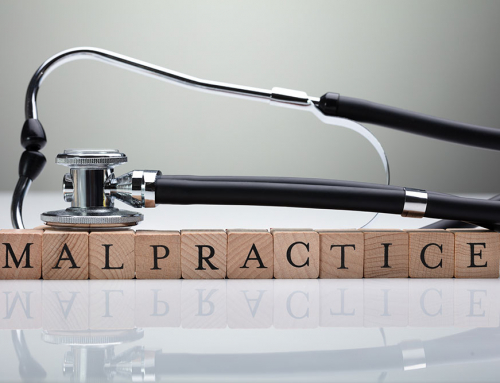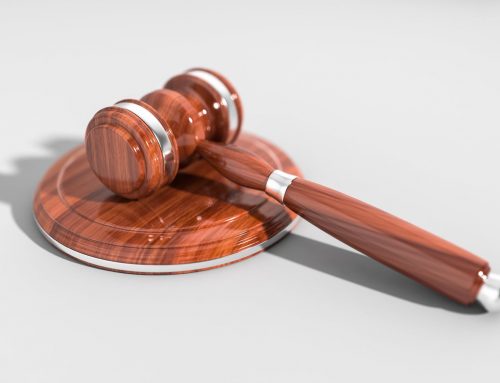If I’m Self employed, do I really need public liability insurance? Public liability insurance might not be near the top of your list of things to consider as a small business owner, but it should be. Research shows that nearly 1.5 million Australians are self-employed. This accounts for around 17% of the total workforce.
If you’re one of these workers, you know that some of the standard rules, regulations, and policies that apply to full-time salaried office workers are a little different for you. That said, it’s easy to get confused about what does apply and what doesn’t. Public liability insurance falls into this grey area and you might have put it off until now. However, it’s time to understand the basics so you can make a smart decision moving forward.
As a self-employed worker, are you required to pay for this coverage? Today, we’re exploring the answer to this question in detail so you never have to second-guess again.
Ready to dive in? Let’s get started!
What is Public Liability Insurance?
In short, public liability insurance is designed for anyone who interfaces with the public on a regular basis. This policy protects you in the event that a third party suffers a personal injury, death or property damage as a result of your business activities. In addition, it also helps protect you against other types of damages, including:
- Pain and suffering
- Sickness
- Disease
- Disability
- Fright
- Shock
- Mental anguish
- Mental injury
- Wrongful eviction
- Some assault or battery charges

Self employed business owner liability insurance
For most business owners, this type of coverage is a no-brainer.
Not only does it safeguard your business against the costly aftermath of such an incident, but it also sends a message to current and future clients that you’re invested in their wellbeing. You can also use public liability insurance to help cover the costs you incur as you work through a claims assessment, including all administrative and investigative expenses.
The only time that such a policy would not offer protective coverage is in the event that a claim relates to:
- Asbestos
- Product recalls
- Punitive damages
- Workers compensation
- Gradual pollution
- Aircraft products
That said, not every self-employed worker in Australia is required to pay for this type of coverage. Next, let’s take a look at a few types of workers who will need it, and those who won’t.
Am I Legally Obligated to Carry It?
The short answer? Unless you’re a self-employed contractor working for the Australian Government, you aren’t legally required to carry self employed public liability insurance.
However, just because it isn’t a legal obligation doesn’t mean that it’s something to shrug off. In fact, most small business owners will agree that this insurance coverage is strongly recommended across a variety of industries.
If you’re unsure whether or not your industry is one of them, the government’s website lists all major sectors, along with their associated legal, operational and business requirements.
In general, business owners will purchase this type of insurance policy if one or both of the below statements holds true about their organization:
- The general public, including delivery personnel, can visit you on-site at your home or place of business.
- Your business regularly hosts off-site events that are open to the general public.
Examples of Applicable Fields
A self-employed Australian worker who works from home all day and never comes into contact with a member of the public for work-related endeavours might not need public liability insurance. However, there are plenty of fields that do, including the following.
Contractors and Tradies
Are you a construction worker, carpenter, plumber, electrician or any other member of the contracting trade? If so, a majority of your workday involves interfacing with the public.
As such, you’ll definitely need public liability insurance to protect your business as much as possible. This is especially the case if you work on a regular basis with dangerous and heavy-duty machinery that could pose a significant safety risk.
Advertising and Marketing Specialists
This is another example of a people-person field! If you’re in the marketing sphere, you interface with public clients and prospects on a daily basis. They rely and depend on you to create solutions that will help drive business and exposure to their company.
What would happen if a project that you spearheaded went awry and winded up costing your clients a significant amount of money in financial damages? A public liability insurance policy could help protect your own bank account while you help them restore theirs.
Accountants and Banking Professionals
In addition to public liability insurance, banking and finance professionals should also have professional indemnity insurance.
Why? You could be the best accountant in the city, but one slip of the keyboard could render your best client penniless in an instant. Professional indemnity insurance protects your business if a service you perform harms your client financially as a result of your:
- Act
- Error
- Omission
Depending on your niche and skill set, these acts will vary. Some of the most common mistakes that industry professionals make include:
- Auditing errors
- Incorrect tax advice or preparation
- Incorrect numerical data analysis and interpretation
Gardeners and Landscapers
Landscape professionals invest a significant amount of money into their tools and equipment. If you’re one of these experts, are you prepared to bounce back financially if a member of the public is hurt or loses personal property on your job site?
A public liability insurance policy can help you answer “yes”. In addition, this policy will also help you recoup your losses if someone steals your materials while you’re on-site.
Mortgage and Real Estate Experts
Most self-employed jobs in the real estate sector are widely public-facing. This includes mortgage lenders (such as Quantum Finance Australia), agents, loan consultants and more.
The very nature of the housing industry means that there are plenty of opportunities for your clients or prospects to experience an injury. For instance, touring unfinished houses could result in injury or another mishap. Investing in public liability insurance helps make sure you’re covered if such an accident happens.
Professional Consultants
Do you plan to offer consultancy services that require in-person visits with the public? This might mean having open business hours during which clients and prospects could arrange a meeting to discuss their needs. If anything goes wrong during such an encounter, you could face an expensive claim that your fledgling business isn’t prepared to cover.
That’s why most consultants will benefit from carrying public liability insurance.
Small Business Owners
Do you own and operate a small brick-and-mortar business? From bookstores to retail clothing boutiques, there are myriad different types of shops and storefronts scattered all around Australia. Keep in mind that the second you open your doors to the public, you’re making yourself liable for any injuries or damages that occur on your premises.
You’ve heard of public liability for business, but did you also know it’s equally important to invest in public liability for coffee shops, cafes, art galleries, and any other niche business that attracts passersby? Otherwise, a simple snafu could cost you big time. A small business owners liability insurance policy could be the saving grace you need to get back on your feet and stay there.
Public Liability Insurance vs. Professional Indemnity Insurance
In your quest to obtain all of the insurance coverage you need, you might have come across another type of policy that sounds similar to this one: professional indemnity insurance.
How does professional indemnity insurance differ from public liability insurance? Both types of insurance policies will cover compensation claims that your business faces. However, the details of those claims will differ.
As its name implies, public liability insurance covers your business against claims filed by any member of the general public, including:
- Current clients
- Current customers
- Suppliers
- Passersby
For instance, a vendor might slip and fall walking into the entrance of your office building. Or, you could schedule a consultation with a prospect and spill your cup of coffee over their laptop.
In both of these instances, the other party can legally file a claim against you to help pay for any physical or property damages. The types of claims filed might include injury compensation claims or property damage compensation claims. In addition, you can also use the money to help cover any legal fees you incur.
On the other hand, professional indemnity insurance only covers you if a client files a claim stating that you had an error in your work that cost them or their company.
Some of the most common mistakes that you might make include:
- Performing professional negligence
- Losing important documents or data
- Unintentionally breaching copyright or confidentiality
- Engaging in defamation or libel
What If I Don’t Have Public Liability Insurance?
As mentioned, there are some self-employment scenarios in which you might never come into contact with the public. For instance, you might be a self-published author who works from home all day and handles his own administrative work.
However, most employees, whether they work for themselves or for someone else, interface with the third-party public on a consistent basis. You might have customers who pass through your premises or ones who use a good or service that you sell.
As such, failing to purchase a public liability insurance policy could expose your business to a great amount of risk.
The reality is that even if you follow every industry best practice regarding quality control, inspection, regulation and safety, you cannot foresee any injury, accident or mishap that might occur at your business. Moreover, you cannot guarantee that every product you produce will be completely free of potentially harmful defects.
Paying into your policy won’t cause a major strain on your company’s finances, but it can protect them substantially down the road. Compensation claims can be enormous, and you don’t want to be caught off-guard by one.
What Should My Policy Include?
It’s critical to work with an insurance broker who knows your local regulations and can advise you on the exact level of coverage you need.
Depending on your location, this might mean partnering with a public liability Perth professional or one who knows the laws for public liability Joondalup. When you find the right agency, you can rest assured that your policy will include all the applicable terms and conditions it needs to maximize protection.
Most policies will include details such as:
- The scope of your business
- The scope of any associated entities that your business interfaces with
- Coverage for members of the public, suppliers and third-party members of the wider community
- Coverage for any employees, directors, or partners
Naturally, the level of coverage that you require will hinge on the nature of your business. A risk assessment will reveal the specific level you need, but for the most part, a business that could pose a greater threat to the public will need greater protection. For instance, a labour-centric trade that requires the use of heavy machinery will need more coverage than a sedentary office environment.
Find the Public Liability Insurance Coverage You Need Today
As a small business owner, you already have plenty on your plate to worry about. You might believe that public liability insurance coverage is just another expense that you can avoid.
However, a single claim can devastate your organization and render your hard work fruitless. You cannot know when or if such an incident might occur, but planning ahead can drastically change the outcome in your favour.
Looking to learn more about this type of insurance policy? We’d love to help. We provide such coverage for more than 2,000 different types of occupations, with policies ranging from $5 million to $30 million.
Grace Insurance does not accept any liability arising out of any reliance on the information in this article. We urge you to consult your insurance broker for personal advise, as we only provided general advise.






